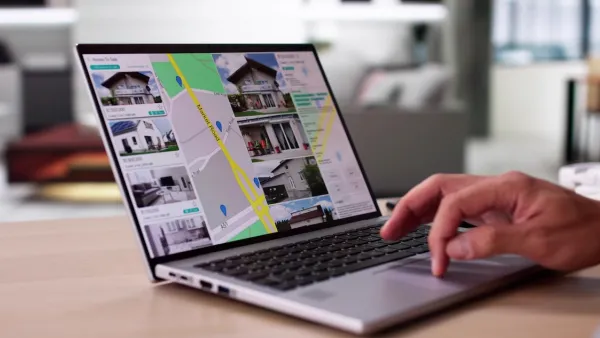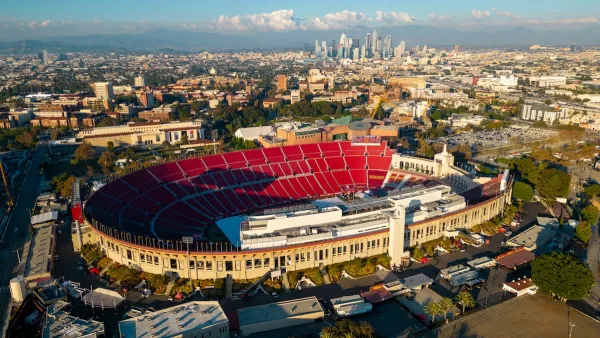Study participants were more likely to support sustainable transportation projects when shown AI images of what the completed real-life infrastructure would look like, suggesting generative AI could be a useful tool for planners.

Researchers in a new study published in Nature showed people AI images of what United States cities would look like with fewer cars and more space for pedestrians, cyclists, and public transit — and people liked what they saw. In fact, they were more likely to support government spending to implement those sustainable transportation policies than people to whom the project and concepts were just described. Petapixel senior news editor Matt Growvcoot explored the study’s results in a recent article.
“The MIT Sloan School of Management presented 3,100 participants with a hypothetical $500 million bill that would replace half of all car lanes in the United States with bus lanes, bike lanes, and wider sidewalks. The subjects were shown a photograph taken from Google Street View showing a cityscape dominated by cars and then three AI alternatives showing how the bill could affect urban environments,” he writes. “The participants who saw the AI illustrations of the city designed for pedestrians rather than cars were more likely to say they would support the fictional bill. Other participants who were simply shown slides with words such as 'greener' and 'bikeable' or rudimentary cartoons of public transport and foliages were less likely to show support for the bill.”
In car-centric America, people have very strong opinions and reactions when planners and policymakers start talking about “taking away” cars, or space from cars. Could AI-generated images be the key to building public support and political will around sustainable transportation projects? This study certainly suggests so. Regardless, it seems like one ethical use of AI-generated images and a potentially valuable AI tool to add to planners’ toolkits.
FULL STORY: People Support Car Bans When Shown AI Images of What Cities Would Look Like

Analysis: Cybertruck Fatality Rate Far Exceeds That of Ford Pinto
The Tesla Cybertruck was recalled seven times last year.

National Parks Layoffs Will Cause Communities to Lose Billions
Thousands of essential park workers were laid off this week, just before the busy spring break season.

Retro-silient?: America’s First “Eco-burb,” The Woodlands Turns 50
A master-planned community north of Houston offers lessons on green infrastructure and resilient design, but falls short of its founder’s lofty affordability and walkability goals.

Test News Post 1
This is a summary

Analysis: Cybertruck Fatality Rate Far Exceeds That of Ford Pinto
The Tesla Cybertruck was recalled seven times last year.

Test News Headline 46
Test for the image on the front page.
Urban Design for Planners 1: Software Tools
This six-course series explores essential urban design concepts using open source software and equips planners with the tools they need to participate fully in the urban design process.
Planning for Universal Design
Learn the tools for implementing Universal Design in planning regulations.
EMC Planning Group, Inc.
Planetizen
Planetizen
Mpact (formerly Rail~Volution)
Great Falls Development Authority, Inc.
HUDs Office of Policy Development and Research
NYU Wagner Graduate School of Public Service




























